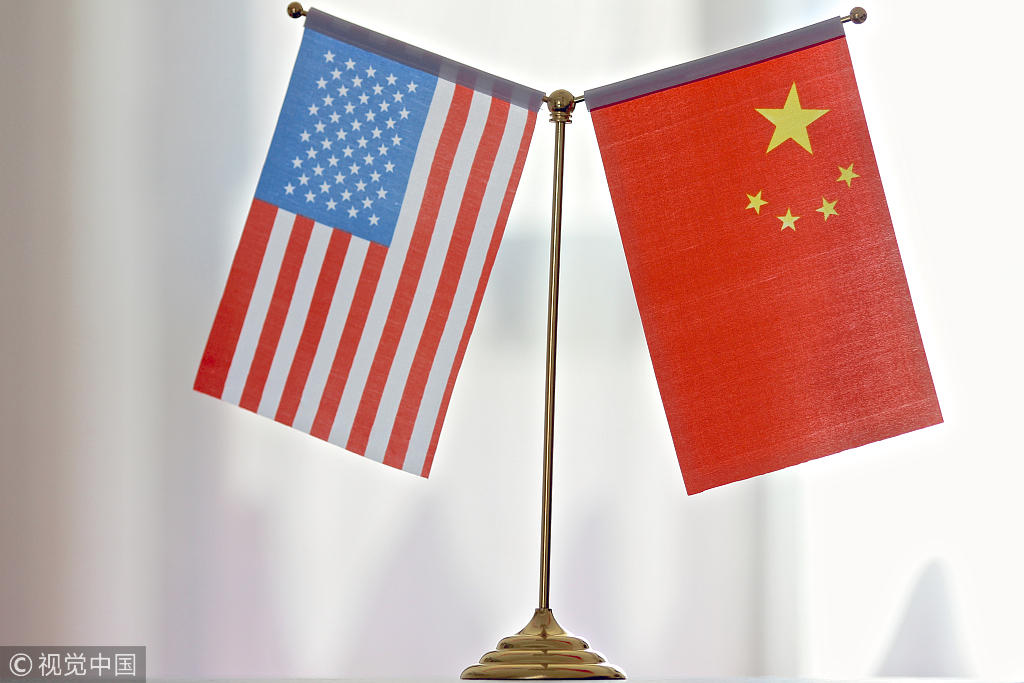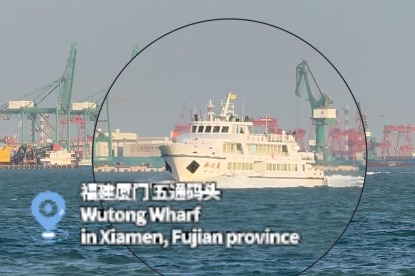Trade war a distraction from volatility of Trump policies


There is nothing like a trade war to deflect public sentiment and focus anger on other nations and their people. It avoids the real domestic economic issues, allows people to assume that some external force is the cause of their problems, and facilitates politicians procrastinating on what they should be doing to solve their own domestic problems.
Where US Vice-President Al Gore spoke of the climate crisis as an “inconvenient truth”, for US President Donald Trump, the presumptions behind his trade war with China are a “convenient untruth.”
Trump recently ordered American corporations to withdraw from China and reconsolidate their investments in America. For a president who preaches free market, it seems quite inconsistent that he should be ordering American companies to act against their long-term market decisions for his own short-term political agenda. This is not only unprecedented and anti-market, but also, under American law, totally unconstitutional.
Trump’s rampage is consistent with the tactics of the current extremist right-wing White House. It is easier to blame others across the world for America’s own problems than to take responsibility and try to solve them. Meanwhile, the climate, foreign policies and domestic fiscal policies of the White House are leading to a global crisis that will affect us all.
World leaders are deeply concerned. Nowhere was this more evident than during the open and even personal conflict that flared among global leaders, ripping apart the recent G7 meeting in France to pieces. This G7 round failed progress on any of the core issues ranging from climate to Iran, leaving everyone empty-handed and US leader Donald Trump ranting and ratcheting up tariffs in his ongoing unilateral trade war with China.
While the Amazon fires and Iran topped world headlines, under their breath world leaders are increasingly concerned about the US dollar, the apparent conflicts within the current Washington administration between the White House and Federal Reserve, and moreover within the Federal Reserve itself over which policy to adopt in addressing the dollar and market stability. This open and apparent confusion is further exacerbated by the expanding US debt that may be the very reason for diverting both national and international attention away from America’s problems, by blaming China for them and further exacerbating an unnecessary trade war.
American debt shadows all of this, but nobody really talks about it. The talking heads on the financial talk shows never utter a word. America’s $22 trillion in debt is a historic record. That means both Republicans and Democrats alike are aligned in ignoring the problem and sweeping it aside in the hopes that the world does not seek alternatives and that they can politically run their own terms through before the crisis shatters everything and the house of cards comes tumbling down.
The US government has opened up the bond debt ceiling for two years, which means that it will keep printing money. As Washington floods the market with paper dollars, erratic market volatility will continue. Global investors and central banks will need to find safe havens for their investment leading to diversification away from the dollar.
A clear indicator lies in rising gold prices as continued excess dollar paper printing is becoming so worrisome for many. As Hong Kong investment banker Johnson Li has observed, “For the first time in decades people are actually shifting from paper to physical gold. This is not only affecting individual investors. World central banks are moving their reserve back to gold as well.” Considered development of gold-backed cryptocurrency by a number of central banks indicates further evidence of concern and a patterned shift away from the traditional US dollar toward other options. A shift toward non-US dollar Swift payment in the interbank market indicates an emerging consensus in support of alternatives to the US dollar as the means of payment in international trade exchanges.
Across the world, alternatives are on the rise, in part as an outcome of the changing global economy, the rise of new technologies, and continued global integration despite America and certain European countries seeking global disintegration. There is a harkened necessity of finding new global payment and currency reserve systems to assure stability in an environment that has become increasingly volatile. Dollar dependence means depending on a White House whose own policies are at best highly volatile.
The truth is that current White House policies are eroding the century-long global trust and credit in the US dollar as the world’s reserve and clearing currency. Other alternatives appear, including the yuan as a clearing currency for payments on countries involved in the Belt and Road Initiative. This is exactly what the White House fears the most. It is a major reason for picking a trade war with China.
Laurence Brahm is the founding director of the Himalayan Consensus and a senior international fellow at the Center for China and Globalization.
The opinions expressed here are those of the writer and do not necessarily represent the views of China Daily and China Daily website.


































